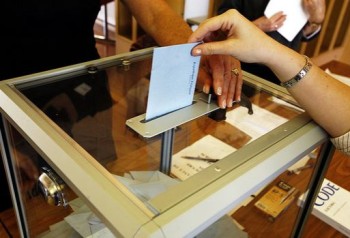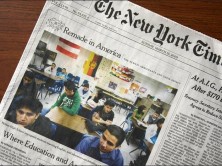
With the upcoming Australian elections in July, the Australian Press Council is reminding the country’s news outlets about how to responsibly report. In guidance released this week, the council, which has about “900 real and virtual mastheads,” highlighted nine keys to covering the election.
“In previous election campaigns the Council has seen a spike in complaints – maybe not so surprising in such a politicised/polarised environment,” council chair David Weisbrot told iMediaEthics. The guidelines were originally approved seven years ago, revised four years ago, and released again with additional advice this week in light of the upcoming election.
What’s new? Weisbrot told iMediaEthics he added guidance based on complaints surrounding previous elections in order “to provide publishers with information about the pattern of complaints about election reporting in the past – this is part of our commitment to learn from the complaints experience, rather than merely treating each complaint as a one-off allegation of aberrant practice.”
It’s fine for a newspaper “to have its own political position; to accept certain beliefs and policies and to reject others; and to favour the election of one party and to oppose the election of another,” the council said.
Australian newspapers should
- Report fully and accurately on public issues
- Distinguish between news and editorial
- Give “equal space” when featuring candidates or their policies
- Use photos of candidates that are “of equivalent quality”
- Not interview only one candidate about a matter, but ask all candidates for comment
- Give candidates time to respond to critical reports, especially if it is just before the election
- Make sure letters to the editor are real and not submitted under fake names or as part of a campaign against a particular candidate or party
- Verify letters to the editor to make sure claims about candidates’ positions are accurate
- Adopt a policy on publishing letters to the editor from candidates and don’t change it during the campaign
One exception the council highlighted: “the Council has accepted the argument that where there are a large number of candidates seeking election, a newspaper can be selective in whom it approaches and can limit itself to the candidates that it considers have a chance of success.”







Comments Terms and Conditions